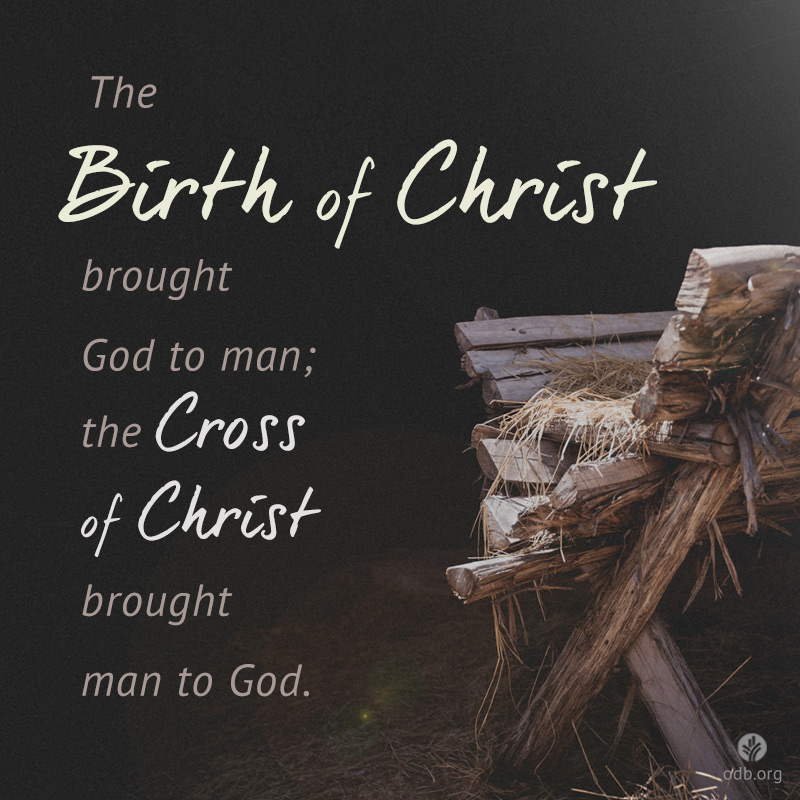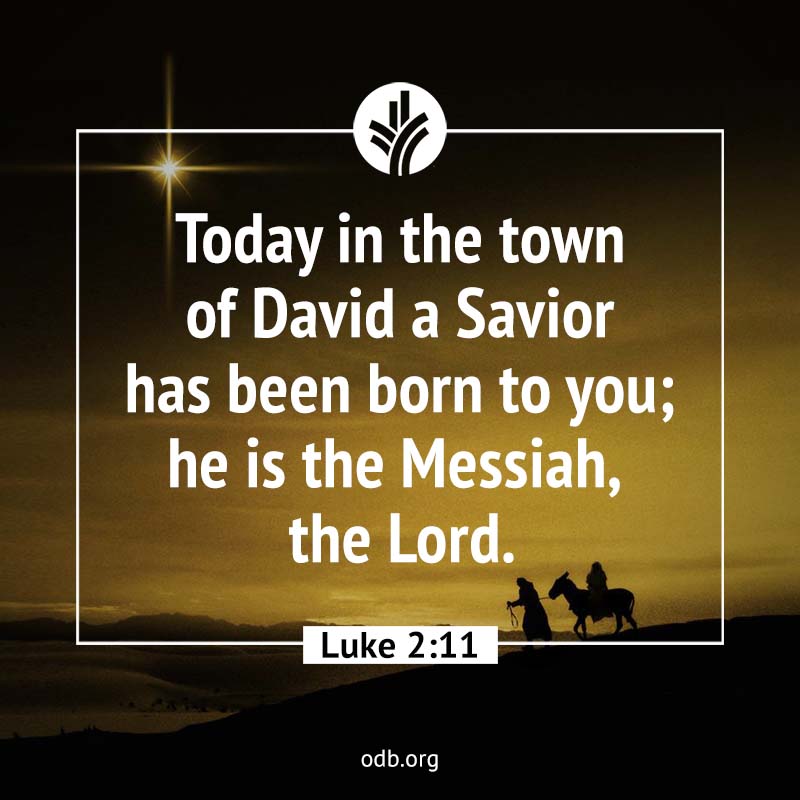One Size Fits All
Like most children, I thoroughly enjoyed Christmas. With great anticipation, I would snoop under the tree to see what toys and games awaited my eager grasp. So I felt deflated when I started getting things like shirts and pants. Grownup gifts were no fun! Then last Christmas, my kids gave me some cool socks with bright colors and designs. I almost felt young again! Even grownups could wear these socks, as the label reassured me: “One size fits all.”
That welcome phrase “one size fits all” reminds me of the best gift of Christmas—the good news that Jesus is for everyone. The point was proven when the first invitation sent by angel choirs was to shepherds on the bottom rung of the social ladder. The news was underscored further when the VIPs—the wealthy and powerful Magi—followed the star to come and worship the Christ-child.
After Jesus began His ministry, an influential member of the Jewish ruling council came to Him at night. In the course of their conversation, Jesus invited “whoever believes” to come to Him. The simple act of faith in Christ grants eternal life to those who trust in Him (John 3:16).
If Jesus were just for the poor and marginalized, or only for the famous and fortunate, many of us would not qualify. But Christ is for everyone, regardless of status, financial situation, or social standing. He is the only gift truly fit for all.

The Drummer Boy
“The Little Drummer Boy” is a popular Christmas song written in 1941. It was originally known as “Carol of the Drum” and is based on a traditional Czech carol. Although there isn’t any reference to a drummer boy in the Christmas story in Matthew 1–2 and Luke 2, the point of the carol goes straight to the heart of the meaning of worship. The carol describes how a boy is summoned by the Magi to the scene of Christ’s birth. Unlike the wise men, however, the drummer has no gift—so he gives what he has. He plays his drum, saying, “I played my best for Him.”
This echoes the worship Jesus described when He told of the widow and her two coins: “ ‘Truly I tell you,’ he said, ‘this poor widow has put in more than all the others. All these people gave their gifts out of their wealth; but she out of her poverty put in all she had to live on’ ” (Luke 21:3-4).
All the drummer boy had was his drum and all the poor widow had were her two coins, but the God they worshiped was worthy of their all. He is worthy of our all as well, having given His all for us.

Amazing Love
Approaching the first Christmas after her husband died, our friend Davidene wrote a remarkable letter in which she pictured what it might have been like in heaven when Jesus was born on earth. “It was what God always knew would happen,” she wrote. “The three were one, and He had agreed to allow the fracturing of His precious unity for our sake. Heaven was left empty of God the Son.”
As Jesus taught and healed people on earth, He said, “I have come down from heaven not to do my will but to do the will of him who sent me. . . . For my Father’s will is that everyone who looks to the Son and believes in him shall have eternal life, and I will raise them up at the last day” (John 6:38,40).
When Jesus was born in Bethlehem, it was the beginning of His mission on earth to demonstrate God’s love and give His life on the cross to free us from the penalty and power of sin.
“I cannot imagine actually choosing to let go of the one I loved, with whom I was one, for the sake of anyone else,” Davidene concluded. “But God did. He faced a house much emptier than mine, so that I could live in His house with Him forever.”
“For God so loved the world that he gave his one and only Son” (John 3:16).

Pax Romana
No one can afford the price of war. One website reports 64 nations are currently involved in armed conflicts. When and how will they end? We want peace, but not at the expense of justice.
Jesus was born during a time of “peace,” but it came at the cost of heavy-handed oppression. The Pax Romana (“Roman Peace”) existed only because Rome squashed all dissent.
Seven centuries before that time of relative peace, hostile armies prepared to invade Jerusalem. From the shadow of war, God made a remarkable pronouncement. “On those living in the land of deep darkness a light has dawned,” the prophet declared (Isa. 9:2). “For to us a child is born, to us a son is given . . . . Of the greatness of his government and peace there will be no end” (vv. 6-7). Matthew tells us that Isaiah’s prophecy found fulfillment in the Christ-child (Matt. 1:22-23; see also Isa. 7:14).
We adore the tiny baby in the manger scene. Yet that helpless babe is also the Lord Almighty, “the Lord of Heaven’s Armies” (Isa. 13:13 nlt). He will one day “reign on David’s throne and over his kingdom, establishing and upholding it with justice and righteousness” (9:7). Such a regime will be no oppressive Pax Romana. It will be the reign of the Prince of Peace.

The Seventh Stanza
In the summer of 1861, Henry Wadsworth Longfellow’s wife, Frances, died tragically in a fire. That first Christmas without her, he wrote in his diary, “How inexpressibly sad are the holidays.” The next year was no better, as he recorded, “ ‘A merry Christmas,’ say the children, but that is no more for me.”
In 1863, as the American Civil War was dragging on, Longfellow’s son joined the army against his father’s wishes and was critically injured. On Christmas Day that year, as church bells announced the arrival of another painful Christmas, Longfellow picked up his pen and began to write, “I Heard the Bells on Christmas Day.”
The poem begins pleasantly, lyrically, but then takes a dark turn. The violent imagery of the pivotal fourth verse ill suits a Christmas carol. “Accursed” cannons “thundered,” mocking the message of peace. By the fifth and sixth verses, Longfellow’s desolation is nearly complete. “It was as if an earthquake rent the hearth-stones of a continent,” he wrote. The poet nearly gave up: “And in despair I bowed my head; ‘There is no peace on earth,’ I said.”
But then, from the depths of that bleak Christmas day, Longfellow heard the irrepressible sound of hope. And he wrote this seventh stanza.
Then pealed the bells more loud and deep: “God is not dead, nor doth He sleep! The wrong shall fail, the right prevail, with peace on earth, good-will to men!”
The war raged on and so did memories of his personal tragedies, but it could not stop Christmas. The Messiah is born! He promises, “I am making everything new!” (Rev. 21:5).
